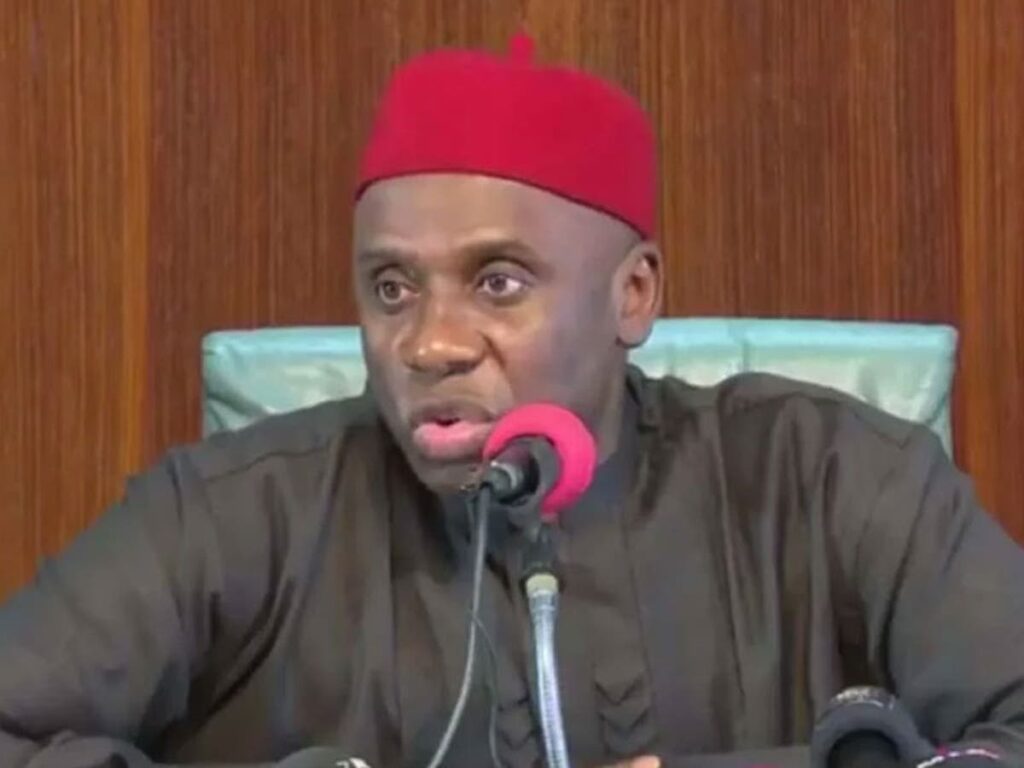- Rotimi Amaechi responds to allegations in Hadiza Usman’s book, accuses her of documenting false narratives, citing specific financial issues
- Amaechi discusses the use of ethnicity in politics and calls for a national leader who can unite Nigeria above divisions
Former Minister of Transportation, Rotimi Amaechi, has responded to allegations made by the immediate past Managing Director of the Nigeria Ports Authority (NPA), Hadiza Usman, in her book titled “Stepping on Toes: My Odyssey at the Nigerian Ports Authority.” Amaechi accused Hadiza Usman of documenting false narratives in her book.
Usman’s book chronicled her experiences as Managing Director of NPA and alleged that Amaechi orchestrated her removal from office in February 2022 because she did not grant him favours.
Amaechi, speaking at an annual lecture organized by The Niche, expressed his reluctance to respond to the claims made in Usman’s book, stating that the lies were too numerous.
He cited a specific instance where Usman, as the Managing Director of NPA with a N2.5 million approval limit, approved a N2.8 billion contract without appropriation. Amaechi revealed that the Bureau of Public Enterprises (BPE) found that the contract was inflated by N58 million, and she was asked to refund the excess amount.
He also highlighted issues related to waivers granted to prominent Nigerians by Usman without the authority to do so, affecting Nigeria’s economy in terms of dollars accrued. Amaechi expressed concern about the lack of transparency and accountability in these actions.
Amaechi further refuted Usman’s claim that he was angry because she did not buy him a birthday gift, stating that she had given him birthday presents until he became a Minister when he advised her to stop buying him gifts.
In his speech at the lecture, Amaechi discussed the use of ethnicity in politics, with political elites often relying on ethnic affiliations to win political offices, which leads to divisions among citizens. He emphasized the need for a leader with a nationalist mindset who can promote diversity, equality, and inclusion in governance.
Amaechi also expressed doubt about the existence of a true national leader in Nigeria, suggesting that a national leader should rise above ethnic, religious, regional, and geographical limitations to unite the nation.
The lecture aimed to address pressing issues affecting the country, as Nigeria faces challenges in various aspects of human development.
